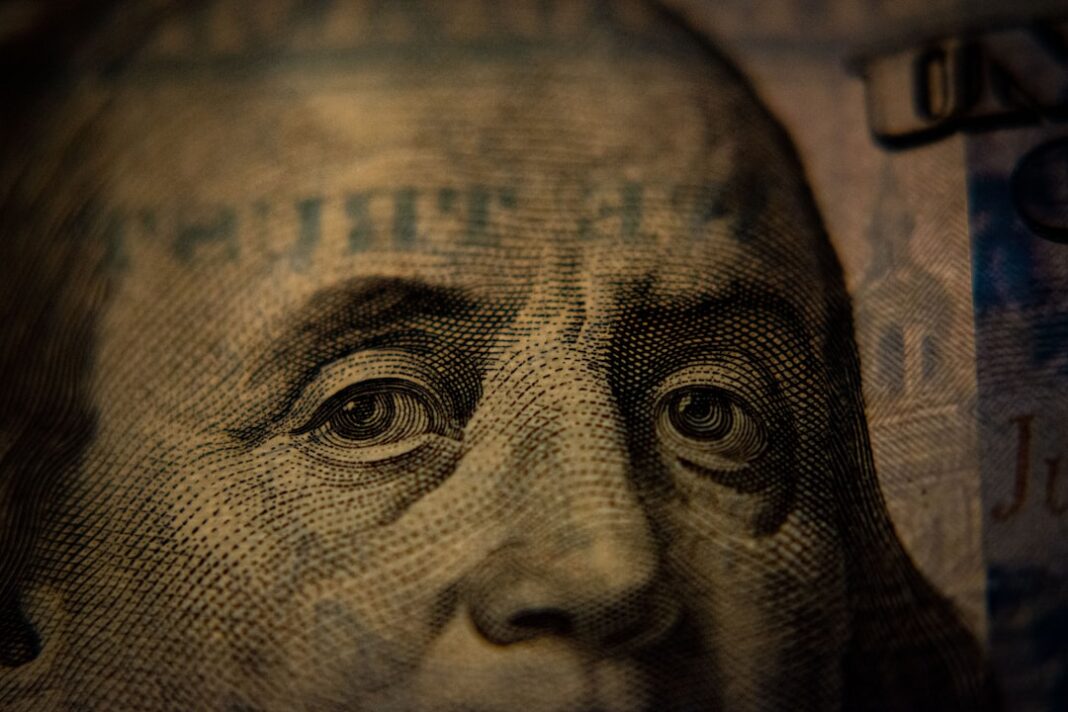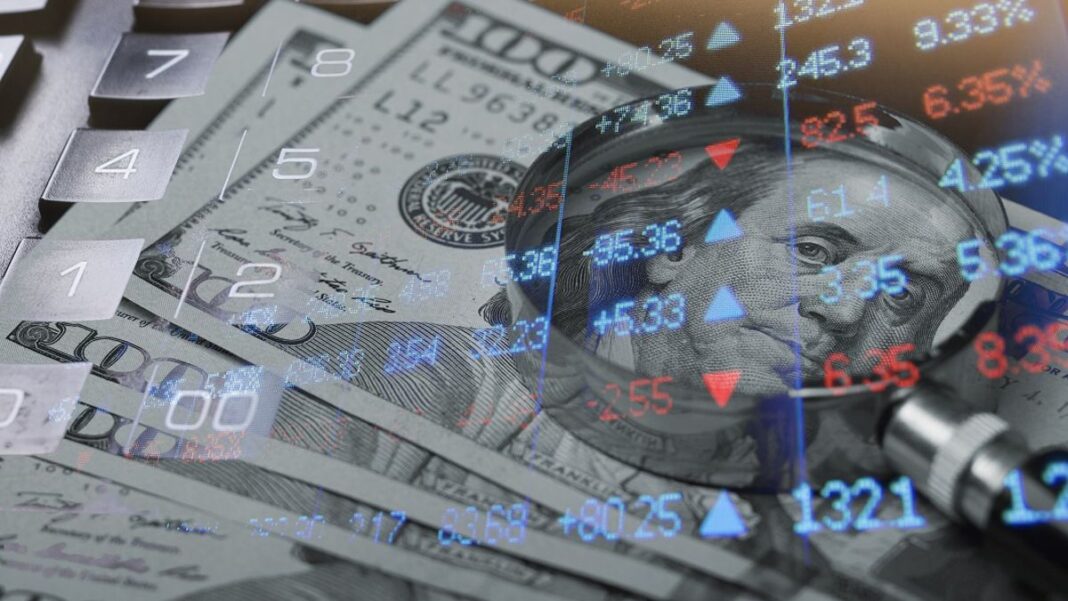
While eight states propose their own “wealth tax” targeting the highest earners, there are significant economic consequences to consider, even at the national level.
Over the years, politicians have suggested a “national wealth tax,” but the idea never gained much momentum in Congress. In another attempt, lawmakers from eight Democratic-leaning states want to introduce their own “wealth tax” to raise funds for social programs, including childcare, affordable housing and an end to homelessness.
The lawmakers, who represent California, Connecticut, Hawaii, Illinois, Maryland, Minnesota, New York and Washington, argue that their proposal for a wealth tax is necessary because the current federal tax code allows multimillionaire Americans to evade paying their fair due.
According to a report released in mid-January from the charitable organization Oxfam, affluent Americans within the top 1% have witnessed their wealth exponentially grow 19 times faster than the bottom half of the nation over the last decade.
One of the reasons that multimillionaire or billionaire American entrepreneurs can continue growing their fortunes at a much faster rate than others is, in part, due to differences in taxation with income from investments, i.e., capital gains, taxed at a lower rate than earned income.
Noel Frame is a state senator in Washington. “We need to fix our upside-down tax code that rewards the wealthiest few and makes it difficult for working people to pay their rent, put food on the table, and ensure their families have what they need to thrive,” she said during a news conference in late January.
Speaking of a proposed “Washington State Wealth Tax,” Frame went on to say that the bill is “common sense” and will ensure that “some of the richest people in the world, some of whom live right here in Washington state, pay property taxes on their assets just like middle-class families who own a home pay taxes on theirs.”
The eight lawmakers in question are eager to tax “appreciating assets,” that is, assets that increase in value, such as equity, bonds and real estate—which presently initiate a tax payment only once sold.
It might be common practice among the wealthiest in the United States to hold on to such assets by taking out bank loans that use those assets as collateral, i.e., an asset that a business can use as security for a loan.
Complaints about the current tax system:
According to Fame, the state of Washington harbors nearly a hundred billionaires (think Microsoft co-founder Bill Gates) and reckons it could raise practically $3 billion annually through its wealth tax proposal by adding a 1% tax on financial assets. That said, the first $250 million worth of assets would be exempt.
California is another state home to mega-millionaires and billionaires, and anyone with over $50 million worth of assets would face a 1% tax on their wealth. Meanwhile, a 1.5% tax would be added to an individual’s wealth of more than $1 billion. According to California Assemblyman Alex Lee, the proposal would raise $22 billion in new revenue. He has commented that:
“While the income tax is successful at taxing most Californians, it is not very effective at taxing the ultra-wealthy who do not need to realize their incomes. For instance, the richest Californians like [Facebook co-founder] Mark Zuckerberg or [Google co-founder] Larry Page can largely avoid the state’s income tax as long as they do not sell their Facebook or Google stocks. This is a loophole in our current tax system that unfairly shifts the tax burden to middle- and low-income Californians while incentivizing wealthier individuals to continue hoarding their wealth.”
Will Guzzardi, a Democratic member of the Illinois House of Representatives, projects that his wealth tax proposal could raise between $200 to $500 million annually. The idea is to direct any revenue into new “Working Families” state fund, which would support social programs such as funding education, housing initiatives (i.e., ending homelessness) and universal childcare.
“When you hear Elon Musk or Jeff Bezos has made billions, tens, hundreds of billions of dollars during the pandemic, they didn’t make that in income like wages the way that you and I make income,” Guzzardi said, likely speaking of mostly middle or upper-middle class Americans. “They made that through the growth of their assets. The value of their stocks went up. That’s what they do to make money. That’s income for these guys. So, we want to tax that just like the income that the rest of us make.”
One of the challenges with this kind of thinking is that those who occupy the top 1% of financial wealth are often, unlike most Americans, large business owners, and the wealth tax drive focuses on investment and entrepreneurship.
Relocation to a different state to evade a wealth tax?
It is not unusual for the wealthiest residents in these eight states to move to states where the taxes are much lower, a move already taken by podcaster Joe Rogan and conservative political commentator Ben Shapiro.
Consider New York state. The top 1% of the wealthiest residents currently pay around half of state income taxes, so additional wealth taxes that might push them away could seriously threaten the state’s fiscal stability. In recent years, Florida, Tennessee, Arizona and Texas have stacked multiple billions of dollars in gross income due to affluent and upper-middle class residents relocating from states with higher taxes.
Yet, according to Frame, although many of the eight states currently have higher taxes than others, America’s wealthy moguls continue to inhabit and remain within them. “When we try to get billionaires to pay what they owe, we always get threats,” Frame said. “The data doesn’t support it. Have we seen a max exodus of wealthy people? No, we have not.”
According to the University of California Berkeley economist Emmanuel Saez, who helped design Massachusetts Sen. Elizabeth Warren’s national wealth tax proposal, some people would leave. However, that number would be small relative to the number of wealthy people concentrated in a particular state.
State wealth taxes target investment:
At the federal level, the wealthiest earners must pay a 20% tax on capital gains and a 37% tax on earned income. New York state Sen. Gustavo Rivera has proposed a bill that would impose an extra 7.5% tax on capital gains for married couples with incomes above $550,000 and 15% for couples earning above $1.1 million.
As expressed most poignantly in the TaxFoundation, the proponents of a wealth tax “sometimes argue that wealth taxes are small and that the rich can afford them. But because the rates are on net worth—not on income—they cut deeply into investment returns.”
Indeed, everyday Americans and the average taxpayer may not be concerned if the top 1% of the nation’s earners have a lower net worth due to higher taxation. However, many might be worried if investments in new innovative ideas decline as a result.
Furthermore, it would be fair to say that most people think about taxes in terms of their income as opposed to accumulated wealth such as stocks, bonds, precious metals, jewelry, art and real estate. Therefore, the average taxpayer can learn to appreciate how a wealth tax rate compares to income tax rates.
Reported in the TaxFoundation is a practical and succinct example:
Imagine a $50 million investment, held for 10 years and earning a 10% nominal annual rate of return in a 3% annual inflation environment. Without a wealth tax, that investment would yield $46.5 million in investment returns, in current dollars, after 10 years. With a 1% wealth tax, it would yield $37.3 million. The wealth tax would wipe out nearly 20% of the gains. If the gains were realized at the end of 10 years, a 1% wealth tax would have reduced gains by as much as the 20% federal capital gains tax.
America’s entrepreneurial underpinning is a remarkable achievement. As a proponent of innovation, such as medicine for targeted cancer treatment or maximizing space in a small bedroom, it would be great if the public conversation steers towards the type of creations within a business as opposed to adding another layer of tax that would hamper investment in new, meaningful ideas.
Read Original Article On Dear Rest Of America
Cameron Keegan is an independent researcher and writer on American politics, faith, and culture through a conservative disposition. To learn more, visit Dear Rest Of America. Please consider making a small contribution via “buy me a coffee” because your support will help provide you with ongoing commentary.








